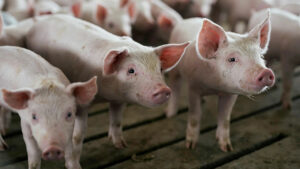HOG FARMERS said burdensome documentation requirements have delayed their participation in the government’s limited rollout of the African Swine Fever (ASF) vaccine.
Alfred Ng, vice-chairman of the National Federation of Hog Farmers, Inc., said: “Many backyard farmers are having difficulty in securing the necessary documentation for the trials.”
Mr. Ng added that some local government units are not aware of the vaccine trials hindering further expansion of the program.
“Most ASF outbreak areas have disposed of their pigs… and do not have enough samples to be involved in these trials,” he said via Viber.
The Department of Agriculture (DA) recently included commercial hog farms in its vaccine trials to increase the number of inoculated hogs.
Administrative Circular No. 8 opened up the trials to commercial farms and swine herds covered by the Integrated National Swine Production Initiatives for Recovery and Expansion Program. It cited the “low participation rate of smallhold farms.”
The DA allocated P350 million to procure 600,000 doses for hog farmers initially targeted. The rollout started on Aug. 30 in Lobo, Batangas.
The AVAC ASF Live vaccine from Vietnam has been approved by the Food and Drug Administration for a limited government-controlled rollout. It issued a Certificate of Product Registration for AVAC, valid for two years, and subject to monitoring and annual evaluation.
“We still believe in DA’s controlled vaccine trials and they should not be hurried… We need to ensure that the vaccine is proven to be safe and effective,” Mr. Ng added.
He said that commercial hog farms may not readily participate in the vaccine program given the government requirements, which include blood tests and constant monitoring of the hogs.
The DA has said that it takes about three weeks to blood-test hogs before they can be given the ASF vaccine. The development of antibodies is also expected to take a few weeks.
Mr. Ng added: “We all pray for an effective vaccine that will be safe and not harmful to our already beleaguered swine industry. We hope that these trials do not create a mutated strain that is more difficult to control and contain.”
As of Oct. 18, 108 municipalities across 25 provinces had active ASF cases, according to the Bureau of Animal Industry. — Adrian H. Halili

